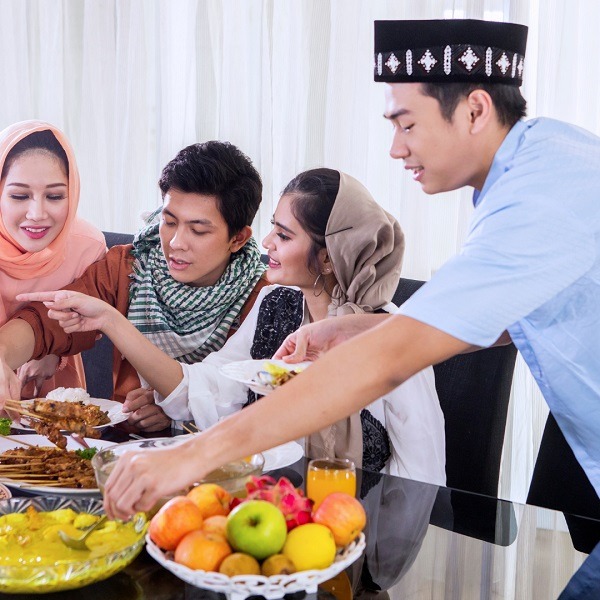
Written by Wills & Estates Principal Lawyer, Brooke Reardon.
Succession law is more than the transmission of wealth, but also your values, cultural beliefs, and religion. Considering these elements is not only vital for future preparation, but for protecting your wishes and upholding your family’s traditions.
According to the Australian Bureau of Statistics, nearly two thirds of Australians affiliate with a religion. Christianity was the most common religion reported in 2016 (52%). Islam (2.6%) and Buddhism (2.4%) were the next most common religions reported.[1] Many of these religions have strong customs around funerals, medical procedures and Estate distribution. If you wish to include instructions to maintain your beliefs in the event something was to happen to you, there are a number of provisions and legal documents you can include in your Estate Planning to safeguard your values.
Funeral Arrangements
A Will is a good place to outline your funeral wishes, however it is important to detail them in a separate document and speak about it with your loved ones, especially any religious rites or body handling requests you would like to include. For example, under Jewish law, autopsies and embalming are generally prohibited.
Funeral arrangements can include the following wishes:
- Whether you want a funeral or memorial service
- Where the service should be held
- Whether you want to be cremated or buried
- Where you would like your ashes stored or disposed of or where you want to be buried
- If you have money set aside to pay for your funeral expenses
Advance Health Directives
An Advanced Health Directive (AHD) is a legal document where you can give instructions about your future health care while you are living. An AHD comes into effect when you lose the capacity to make your own decisions which can occur for a range of different reasons including a brain injury or a disease such as Dementia.
Various religions have specific views on common medical procedures and it is important to notify future carers as to how you would like to handle these procedures. Examples of such considerations are as follows:

Pregnancy
Pregnant women should specify the issues of pregnancy since considerations of the mother versus the foetus vary greatly between different religions. If something was to go wrong, particular religions have a preference to choose to save the life of the mother over the baby or vice versa. Furthermore, religions such as Jehovah’s Witnesses are known to decline blood transfusion which may be required after child birth.
Pain relief
In some religions, the act of suffering can be an experience providing for purification, redemption, and salvation and may call for no pain relief in the final days if someone is terminally ill. It is important to state your preference regarding pain relief for medical practitioners to respect your wishes.
Dietary requirements
Many religions have guidelines on what is appropriate to eat in order to demonstrate faith including have a strictly plant-based diet. As a part of your AHD, you can put in a request to continue a certain diet if you are incapacitated.
Family Provisions
Various religions have different interpretations of distributing wealth and assets amongst family members. For example, if you have removed yourself from a particular faith like Christian Orthodox, yet your family continues to practice the faith, they may leave you out of a Will.
In the case of Omari and Omari v Omari 2012, an elderly Muslim woman by the name of Mariem Omari drafted a Will in accordance with her Islamic tradition. She divided her Estate by nominating full shares to her three sons and only half shares to her five daughters. One of her daughters contested the Will successfully establishing that Mariem did not have testamentary capacity to prepare a Will at the time due to suffering from Dementia. Despite the Will being deemed as invalid by the Court, the judge did accept some of the evidence in relation to the expectations within the Muslim faith as to how an Estate will be divided where the Will maker has children.[2]
This case raises a number of questions in particular to Family Provisions. What if Mariem had testamentary capacity? Would the Court have allowed the allocated distribution of the Estate?
The freedom to make a Will on whatever terms one wishes is limited by the overriding consideration that a person must consider his or her moral responsibility to provide for one’s spouse, children or others. The Court has the power to order financial provisions to be made out of the Estate of a deceased person for the ‘proper maintenance and support’ of a person ‘for whom he or she had responsibility to make provision’.
It important to keep the Family Provisions in mind when preparing a Will to ensure your children are adequately provided for in addition to other family members. Different legislation applies in different states so it is important to review these with a succession lawyer to ensure you have included everything. The court considers various factors to determine whether the deceased had a responsibility to make provision for a person and whether the proposed distribution of the Estate, as contemplated under the deceased’s Will or rules of intestacy, makes adequate provision for the proper maintenance and support of that person/persons.
Getting your Will done goes beyond just distributing your assets. It is fundamentally about protecting your wishes when you lose capacity or leave this Earth which includes your values and beliefs.
For specific legal advice in relation to your personal situation or religion, contacting a succession lawyer is advised.
[1] 2016 Census Data, Australian Bureau of Statistics, abs.gov.au
[2] Omari and Omari v Omari [2012] ACTSC 33 (9 March 2012)
How to include religious How to include religious How to include religious How to include religious How to include religious How to include religious How to include religious



